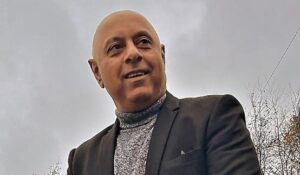A new report titled “Countering Islamophobia on Campus”, produced jointly by the University of Bradford and the Aziz Foundation, has shed light on the persistent challenges Muslim students and staff face within the UK’s higher education system. The study, led by Dr Yunis Alam and Dr Izram Chaudry of the University of Bradford, urges academic institutions to adopt more robust and committed strategies to counter Islamophobia and create genuinely inclusive environments.
The research delves into both the perceptions and lived experiences of Muslim individuals in academic spaces, revealing significant concerns around identity, inclusion, and institutional support.
Muslim Identity Still Marginalized in Academia
Key themes emerging from the report include the lack of adequate accommodation for Muslim identities, ineffectiveness of existing complaint systems, and the limitations of current Equality, Diversity, and Inclusion (EDI) frameworks.
READ MORE: Saudi Arabia Showcases Cultural Depth Through the 2025 Islamic Arts Biennale in Jeddah
Despite being located in diverse, multicultural areas, some universities are failing to ensure that their Muslim communities feel safe, represented, and heard.
In a joint statement, Dr Alam, who serves as Head of the School of Sociology and Criminology, and Dr Chaudry emphasized:
“Our findings reveal that even universities with a large Muslim population are not immune to Islamophobia. Diversity alone does not guarantee inclusion or safety. The report encourages institutions to adopt a comprehensive and courageous approach in addressing the structural and cultural underpinnings of Islamophobia.”
Struggles with Belonging and Representation
The report, commissioned under the Muslim Friendly Universities Programme, highlights the emotional and professional toll on Muslim students who often feel the need to overperform to gain acceptance or recognition. Many expressed discomfort about their sense of belonging and a recurring frustration about being left unheard—particularly during global events impacting Muslim communities.
Nevertheless, the research also captures stories of resilience and commitment, as students and staff continue to thrive in academia despite facing systemic barriers.
Leadership Perspective: A Call for Institutional Change
Professor Udy Archibong, Pro-Vice-Chancellor for Equality, Diversity and Inclusion at the University of Bradford, welcomed the report, stating:
“This research is pivotal in exposing the everyday challenges Muslim staff and students encounter. As we pursue our mission to be an anti-racist institution, understanding the scope and depth of Islamophobia is essential. This means confronting biases not just in individuals, but embedded in systems and policies.”
Signs of Progress—and the Work Ahead
Although the findings paint a concerning picture, the report also notes some areas of progress, including an increase in the number of Muslim faculty members compared to two decades ago.
One student shared a more hopeful perspective:
“Coming from Bradford, where there’s a strong Muslim community, I feel represented at the university. It helps me feel like I belong and can openly practice my faith.”
Recommendations for a More Inclusive Future

The report puts forward several concrete recommendations, including:
Maintaining detailed logs of Islamophobia-related complaints to ensure accountability
Narrowing the attainment gap for Muslim students
Holding senior leadership responsible for equity outcomes
Assessing the real-world effectiveness of EDI policies
Establishing a Muslim support network for students and staff
Responding proactively and sensitively to international events that impact Muslim communities
Public Launch and Report Access
The report is being formally launched at the University of Bradford on June 18, from 2:30 PM to 5:00 PM. It is also available online for public viewing and institutional use.
This publication is expected to influence policy development and spark broader discussions about the role of academia in promoting genuine inclusion and dismantling institutional Islamophobia.





